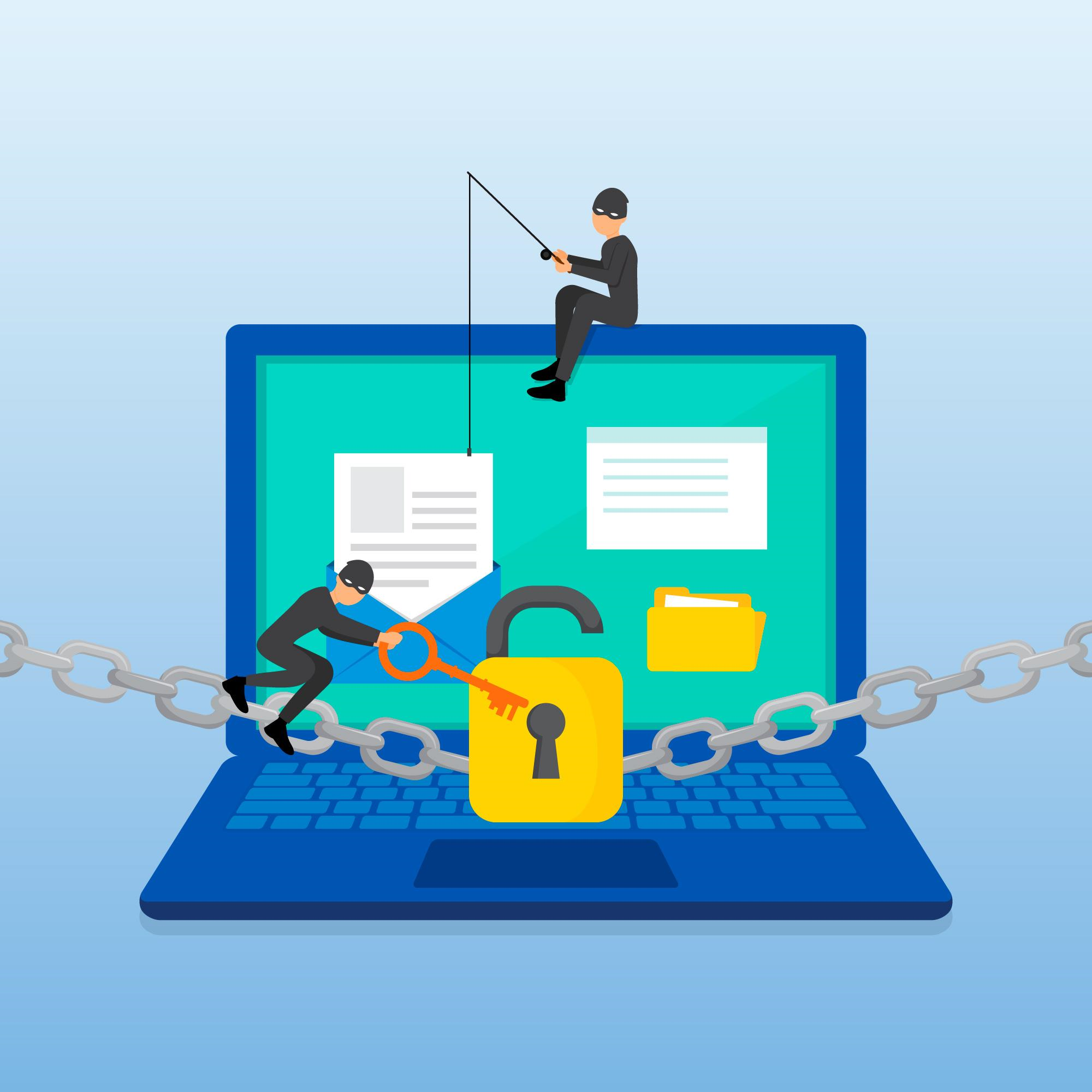The growth in tech and changing work models has also meant a hike in the number and complexities of cyber-attacks. Many cyber criminals are now out to infiltrate computers and access personal information with malicious intent. Most of the cyberattacks tend to target enterprises but even personal devices are not safe. Devices like laptops are often exposed to threats. For starters, it is easier to install applications and use third-party apps. You might be surfing on your laptop and mobile devices with untrusted Wi-Fi and cellular networks. Laptops are also a target as businesses implement Work-from-home (WFH) policies for employees.
However, what is cyber-attack? A cyber-attack is an action made attackers to get unauthorized access or steal data and damage to network and computing system.
Fortunately, there are strategies and best practices you can employ to protect your laptop from cyberattacks. Let us have a look at them:
Install antivirus software
Malware is everywhere and they are increasing. According to the 2022 SonicWall Cyber Threat Report, there was a 105 per cent increase in ransomware attacks across the world compared to 2021. You, therefore, cannot afford to operate your laptop without good antivirus software. Antivirus programs protect your computer from unauthorized code and software threatening your operating system.
Antivirus software protects by identifying real-time threats to keep data safe. Consider programs like Panda Free Antivirus, Malwarebytes, Avast and the likes. Once you install antivirus software, run or schedule regular virus scans to ensure your laptop is always virus-free.
Use secure passwords
Using complex passwords is a simple yet effective way to prevent network intrusion. It is much harder for cybercriminals to invade your systems when your passwords are secure. The password should be long tailed and complex as it is considered a secured password. Ensure that all your passwords are at least eight characters long and have a combination of upper case and lower-case letters, numbers and symbols.
It is also wise to avoid recognizable words and information like birthdays, which hackers can connect to you.
If you are struggling to keep tabs of your passwords, you are not alone! A 2019 study done by Google in conjunction with Harris Poll found that Americans struggle with password maintenance. Luckily, you can use password management apps to help you keep track of your passwords.
Employ two-factor authentication
Complex passwords are the first line of defence against hackers. However, more layers of protection equal better security from cyber-attacks. Two-factor authentication provides an extra layer, boosting security. You can add an SMS or mail as a layer of authentication before you can access your apps. This might come in handy in case you lose your laptop.
Update your software often
Software vendors constantly release updates to patch and fix vulnerabilities, weaknesses and bugs. Installing new updates to your operating systems means you can leverage the security fixes to keep away hackers keen on infiltrating and exploiting your data. Remember to update your apps too. Allow automatic updates, when possible, to make the update process hassle-free. You will not have to think about it. You should also update your devices like routers often.
Use a firewall
Firewalls are software that creates a barrier between your laptop (and the information in it) and the outside world. Firewalls hinder unwanted access to business networks. They go the extra mile and alert a user of intrusion attempts.
It is great that Windows and macOS have inbuilt firewalls. Ensure that the firewall is active before you log in online. Consider purchasing a hardware firewall to take your security to the next level. Companies like Sophos, Cisco and Fortinet are great places to find the best hardware firewalls.
Beware of spam
Email is a popular communication medium. Unfortunately, it’s also as popular with scammers who use it to spread malicious software. Social engineering attacks like phishing scams- where hackers trick a user into sharing their personal data, are common via email. Beware of emails from unknown parties, and avoid clicking links or attachments accompanying them. Configure your internet security software to scan emails and catch the conspicuous ones.
Perform regular backups
You need to conduct regular backups of your hard drive. That comes in handy when hackers succeed in accessing and trashing your system. Backups make it easier to bounce back and rebuild after a malfunction. You could have an external backup hard drive to provide enough space for the utilities to operate sufficiently.
Leverage encryption technology
Encryption technology ensures digital data confidentiality as it transmits using the internet or other computer networks. Cybercriminals accessing your network and files will not decipher the information since they do not have appropriate decryption tools. BitLocker and FileVault are excellent ways to encrypt your Windows and macOS hard drives. It is to consider getting an SSL certificate to provide encryption-based security for all your online communications. Be careful to only interact with encrypted websites. A closed padlock icon in the address bar shows that the website uses encryption technology and is, therefore, secure.
Secure your router
Generally, routers rarely have the highest level of security settings when they come. You will however need to set up a secure password from the default login credentials. Use encryption standards like WPA2 and disable WPS. You can also change the default WIFI name (SSID). That way, intruders will not access your network and trash your settings. Don’t forget to update your router firmware!
Uninstall unnecessary software
Intruders leverage software vulnerabilities to access computer systems. More software means a higher likelihood of exploitation. Removing unnecessary software minimizes possible entry points. Remove software you do not need once you confirm it is safe to remove. Remember to disable unnecessary services and default features to reduce attack opportunities.
Disconnect your computer from the internet
Having your computer connected to the internet makes it susceptible to cyber-attacks. It is, therefore, good practice to completely turn off your computer when not using it. That way, it will be harder for a cybercriminal to access it and leverage vulnerabilities to wreak havoc on your networks and systems.
Have a boot disk
Sometimes, even the best prevention strategies crumble in the face of advanced cyber-attack techniques. And unfortunately, a malicious attack can compromise your computer. Your computer operating system risks corruption, making it unable to use. An emergency boot disk saves the day in such an instance. The boot disk will help you load and boot your operating system.
Wrapping up
With the never-ending threats online hackers expose to systems and networks, you need effective strategies to outsmart the bad guys. The best way to stay safe is to learn how to defend against cyber-attacks. You ought to deploy robust best practices and strategies to protect your networks and devices like laptops from cyber attackers.

Kenny Trinh is a seasoned expert in the field of laptops and technology, boasting an extensive background enriched by years of hands-on experience and in-depth research. With a keen eye for innovation and a passion for staying ahead of the technological curve, Kenny has established himself as a trusted voice in the tech community. Holding a prestigious degree in Computer Science, he combines his academic insights with practical expertise to deliver valuable insights and recommendations to his readers and followers. Through his work, Kenny aims to demystify complex tech concepts, empowering individuals to make informed decisions and optimize their digital experiences.
